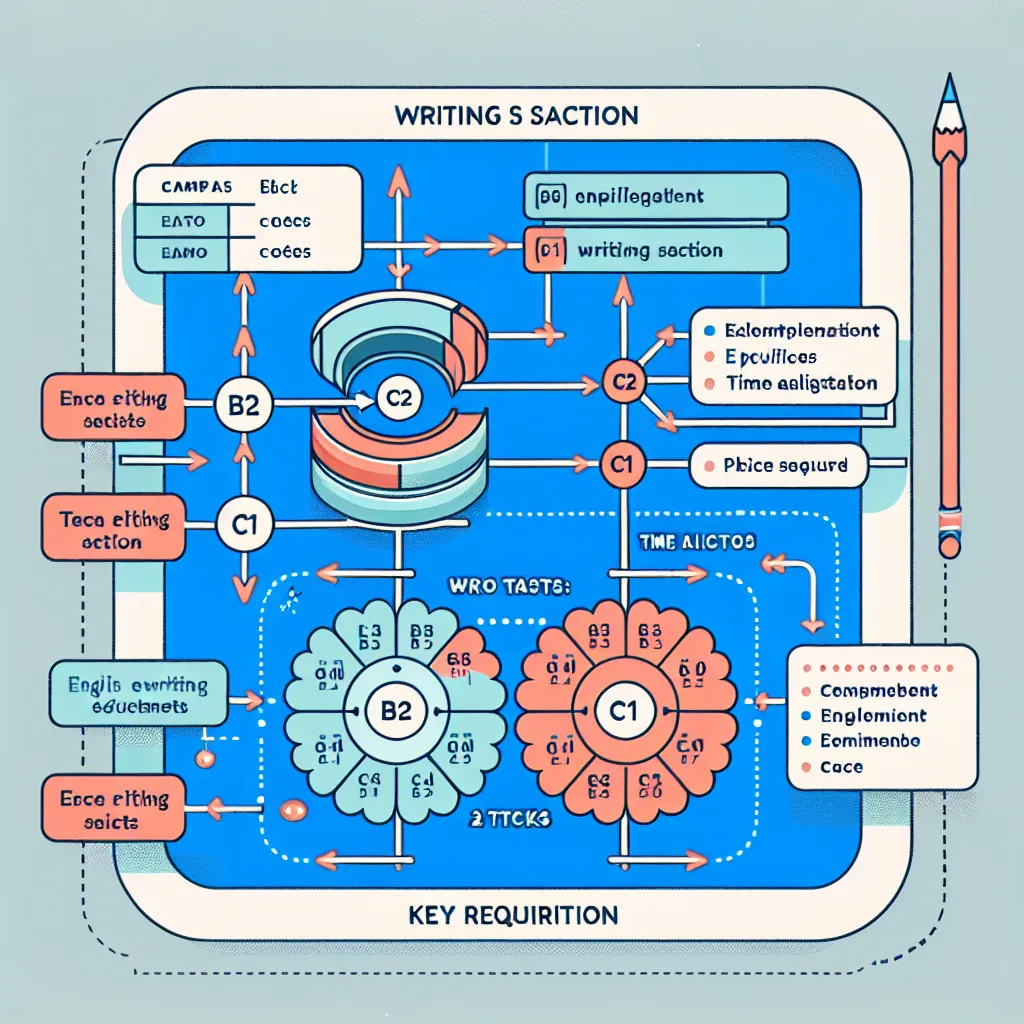The Cambridge Writing section is a crucial component of the Cambridge English exams, designed to assess candidates’ ability to communicate effectively in written English. Understanding the structure and requirements of this section is essential for exam success. Let’s delve into the details of the Cambridge Writing section and explore how many tasks you’ll encounter.
Overview of the Cambridge Writing Section
The Cambridge Writing section typically consists of two tasks, each designed to evaluate different aspects of your writing skills. This format is consistent across various Cambridge English exams, including B2 First (FCE), C1 Advanced (CAE), and C2 Proficiency (CPE). However, the specific requirements and complexity of these tasks may vary depending on the exam level.
 Cambridge Writing Section Overview
Cambridge Writing Section Overview
Task 1: The Compulsory Task
The first task in the Cambridge Writing section is always compulsory. This means all candidates must complete this task, regardless of the exam level. Here are some key points about Task 1:
- Format: It usually requires you to write an essay, a letter, or a report.
- Word count: The required word count varies by exam level but typically ranges from 140-190 words for B2 First to 220-260 words for C2 Proficiency.
- Time allocation: You should spend about 45 minutes on this task.
- Purpose: This task assesses your ability to present information, express opinions, and construct a coherent argument.
Task 2: The Optional Task
The second task in the Cambridge Writing section offers more flexibility. Candidates are usually presented with a choice of questions or prompts. Here’s what you need to know about Task 2:
- Options: You’ll typically have 3-4 options to choose from, which may include articles, reviews, reports, or creative writing tasks.
- Word count: Similar to Task 1, the word count requirements vary by exam level.
- Time allocation: You should allocate about 45 minutes for this task as well.
- Purpose: This task evaluates your ability to adapt your writing style to different genres and audiences.
Importance of Two Tasks in the Cambridge Writing Section
Having two tasks in the Cambridge Writing section serves several important purposes:
- Comprehensive assessment: It allows examiners to evaluate a wider range of writing skills and styles.
- Time management practice: Completing two tasks within the allotted time helps develop crucial time management skills.
- Versatility: The combination of a compulsory and an optional task ensures candidates can demonstrate both their ability to follow specific instructions and their creativity in choosing and responding to prompts.
Tips for Tackling the Two Writing Tasks
To perform well in both tasks of the Cambridge Writing section, consider the following tips:
- Read instructions carefully: Ensure you understand the requirements for each task before starting.
- Plan your time: Allocate equal time to both tasks, leaving a few minutes for proofreading at the end.
- Structure your responses: Use clear paragraphs and appropriate linking words to organize your ideas logically.
- Demonstrate range: Showcase your vocabulary and grammar knowledge, but ensure it’s appropriate for the task and your proficiency level.
- Practice regularly: Familiarize yourself with different question types and practice writing within the time constraints.
Common Challenges and How to Overcome Them
Many candidates face challenges when dealing with two writing tasks. Here are some common issues and strategies to address them:
- Time pressure: Practice timed writing exercises regularly to improve your speed and efficiency.
- Task selection for Task 2: Quickly analyze all options and choose the one you feel most confident about.
- Maintaining quality across both tasks: Develop a consistent approach to planning and structuring your responses.
- Balancing content and accuracy: Focus on expressing your ideas clearly while also paying attention to grammar and vocabulary usage.
Preparing for the Cambridge Writing Section
To excel in the Cambridge Writing section, consider these preparation strategies:
- Use official Cambridge preparation materials: These will give you the most accurate representation of the exam format and expectations.
- Take practice tests: Simulate exam conditions to improve your time management and build confidence.
- Seek feedback: Have a teacher or language exchange partner review your practice essays and provide constructive criticism.
- Read widely: Expose yourself to various writing styles and genres to enhance your vocabulary and writing techniques.
- Review assessment criteria: Familiarize yourself with how examiners will evaluate your writing to focus your preparation efforts effectively.
Conclusion
The Cambridge Writing section consistently includes two tasks across different exam levels, providing a comprehensive assessment of candidates’ writing abilities. By understanding the structure and requirements of these tasks, and by following the tips and strategies outlined in this guide, you can approach the writing section with confidence and maximize your chances of success in your Cambridge English exam.
Remember, practice is key to improving your writing skills. Start preparing early, write regularly, and don’t hesitate to seek help when needed. Good luck with your Cambridge exam preparation!




